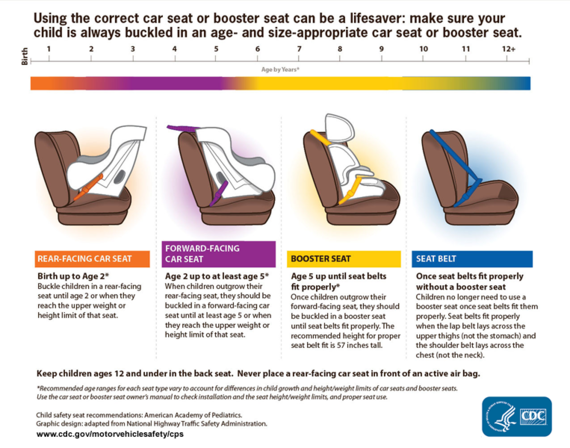
A little over 20 years ago, health researchers showed that the risk of homicide was significantly high for gun owners. Rather than having meaningful dialogue about what risk factors were discovered and how new knowledge could save lives, panicked members of Congress passed the Dickey Amendment which stated, "none of the funds made available for injury prevention and control at the Centers for Disease Control and Prevention may be used to advocate or promote gun control." Since then, NRA lobbyists and their political allies have successfully maintained this policy, even though its author, former Congressman Jay Dickey, has expressed deep regret about the amendment and the subsequent dire shortage of public health research on gun violence.
However, as members of Congress negotiate the current budget omnibus bill, they are considering an end to its ban on the CDC and NIH doing life-saving gun violence research. As tens of thousands of Americans continue to be injured or killed from firearms, Congress must take this opportunity to address gun violence as a public health crisis. Research and public health programs conducted by the CDC, NIH, and their partners successfully address motor vehicle accidents, lead poisoning, swimming safety, smoking, and more. Our country's health has benefited from these efforts, and we are long overdue for well-funded research to help save lives from gun violence.
For skeptics wondering how the CDC and other public health groups may research gun violence, it is worth looking at the Institute of Medicine's 2013 report, Priorities for Research to Reduce the Threat of Firearm-Related Violence. While I do not recommend it for bedtime reading, what I find particularly helpful are all the smart questions this committee of public health experts wants to find answers to: "What attributes of guns, ammunition, gun users, and other circumstances affect whether a gunshot injury will be fatal or nonfatal?" "What factors (like storage practices, time of acquisition, etc.) affect the decision to use a firearm to inflict self-harm?" "What characteristics differentiate mass shootings that were prevented from those that were carried out?" These questions and hundreds more like them need to be asked and answered without fear of political or social backlash. Avoiding these questions will cost us the lives of more of our fellow Americans.
The CDC and NIH's research on gun violence will not be done in a vacuum. One of the most important lessons to learn from our success with reducing motor vehicle mortality is the strength of collaboration. Take a look at this chart about car seats and booster seats for children:
The fine print at the bottom shows how the CDC works together with groups like the American Academy of Pediatrics and the National Highway Traffic Safety Administration to make this information available to parents. But that fine print is just the tip of a much bigger collaboration iceberg that protects all of us as we travel. Highway patrols, car manufacturers, emergency rooms, and many other agencies, both public and private, share information to build knowledge and understanding of vehicle and traffic safety. Data such as vehicle speed, influence of alcohol, the use of seat belts and car seats, and traffic sign visibility are all important pieces of information for researchers. Just as importantly, this information is gathered and shared without violating anyone's privacy while benefiting everyone's safety.
Right now, public health experts at the CDC, NIH, and their partner agencies have poor and limited data to study injuries and deaths from guns. Important information like the relationships between shooters and victims, the influence of drugs and/or alcohol, the type of weapon used, and many other data points are inconsistently gathered and hesitantly shared, making it harder for researchers to study gun violence. Without this information, it is extremely difficult to develop evidence-based answers to tough questions. As mentioned earlier, the avoidance of these questions is costing us the lives of our friends and family.
The Dickey Amendment's ban on federal public health agencies studying guns reflects fear and irresponsibility. For the last 20 years, we have been afraid to ask smart questions and do research on gun violence because of the conclusions we might reach. The mere thought of even slightly adjusting our behaviors and relationships with guns drives some people to panic. For those of us with cooler, but still skeptical minds, I want to offer some reassurances.
Take another look at that guide to car seats, booster seats and seatbelts. Many of us grew up without using any of this safety and we survived -- but more of us would be here if we knew then what we know now. Every state in America has laws of some kind requiring parents with cars to use child safety seats, but families have not lost the "freedom of the open road." The car industry continues to succeed, often marketing on their safety record. Traffic laws informed by public health research in collaboration with law enforcement are part of our day-to-day relationship with government and each other. Anyone feeling oppressed because of speed limits, drunk driving penalties, or helmet requirements for motorcycles? It is true that our relationship with vehicles and traffic has changed over the last several decades, and that willingness to learn and evolve has made us safer and healthier on the road.
Public health research on gun violence by the CDC and NIH can save Americans from firearm injury and deaths. Congress must support scientists who are willing to ask tough questions, do credible analyses, and share truthful conclusions. The knowledge acquired can play a critical role in how we write firearm policies, how we think about the role of guns in our society, and how we protect each other from preventable tragedies.

